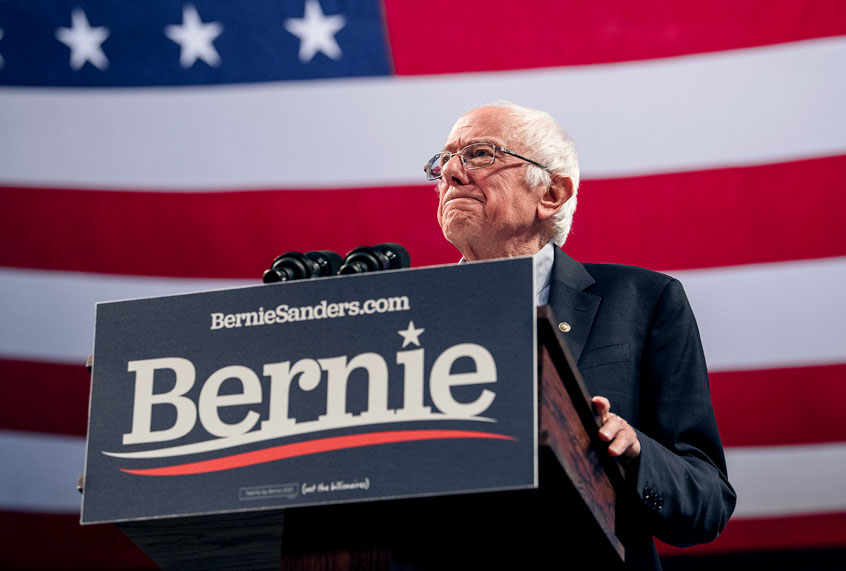The campaign of Sen. Bernie Sanders of Vermont has signaled victory in Iowa, releasing a portion of its internal numbers in the face of unprecedented delays from the state’s Democratic Party in announcing the results of the first in the nation presidential nominating contest.
Sanders received 29.7 percent of the vote from nearly 40 percent of precincts, according to the campaign. He was closely followed by former South Bend Mayor Pete Buttigieg at 24.6 percent, Sen. Elizabeth Warren of Massachusetts at 21.2 percent and former Vice President Joe Biden at 12.4 percent. If those results hold, it would mark a key early victory for Sanders and Buttigieg over Biden, who has long been the frontrunner in national polls. South Carolina, which has a more diverse voting population, remains a firewall for the former vice president.
“We recognize that this does not replace the full data from the Iowa Democratic Party, but we believe firmly that our supporters worked too hard for too long to have that work delayed,” Sanders campaign adviser Jeff Weaver said in a statement.
The Sanders campaign was not alone in suggesting victory Monday night. Mayor Buttigieg told a crowd in Des Moines that “tonight, an improbable hope became an undeniable reality. So we don’t know all the results, but we know by the time it’s all said and done, Iowa, you have shocked the nation. Because by all indications, we are going on to New Hampshire victorious.”
The Iowa Democratic Party claims the problems arose from technical problems with an app used to report results at precincts, according to the Los Angeles Times. The app was developed by Shadow, an affiliate of a non-profit firm named ACRONYM. Federal Election Commission filings revealed that it was paid by both the Biden and Buttigieg campaigns, according to Center for Responsive Politics researcher Anna Massoglia. The CEO of Shadow, Krista Davis, worked for Hillary Clinton’s 2016 presidential campaign.
During a brief call with reporters on Monday night, Iowa Democratic Party Chairman Troy Price said the party was “manually verifying all precinct results” and expects “to have numbers to report later today.”
When Weaver spoke to Salon in 2018 about a prospective Sanders candidacy, he recalled concerns from many who worked on the Vermont senator’s 2016 presidential campaign that the primaries had been rigged against him. At the time, Weaver expressed optimism that the reforms he helped develop within the Democratic Party would preserve the integrity of the voting process.
“Following the primary season and before the convention, there was a Unity Reform Commission, which has now put forward a series of reforms that are under active consideration by the Democratic National Committee. Tom Perez, the current chair, to his credit, is supportive of those reforms, as is the vice-chair,” Weaver told Salon at the time. “We are very hopeful that these reforms can be passed and that they will make important, substantive changes to the primary and electoral process and can also help build a confidence among voters that, in fact, the process will be done fairly in the future.”

